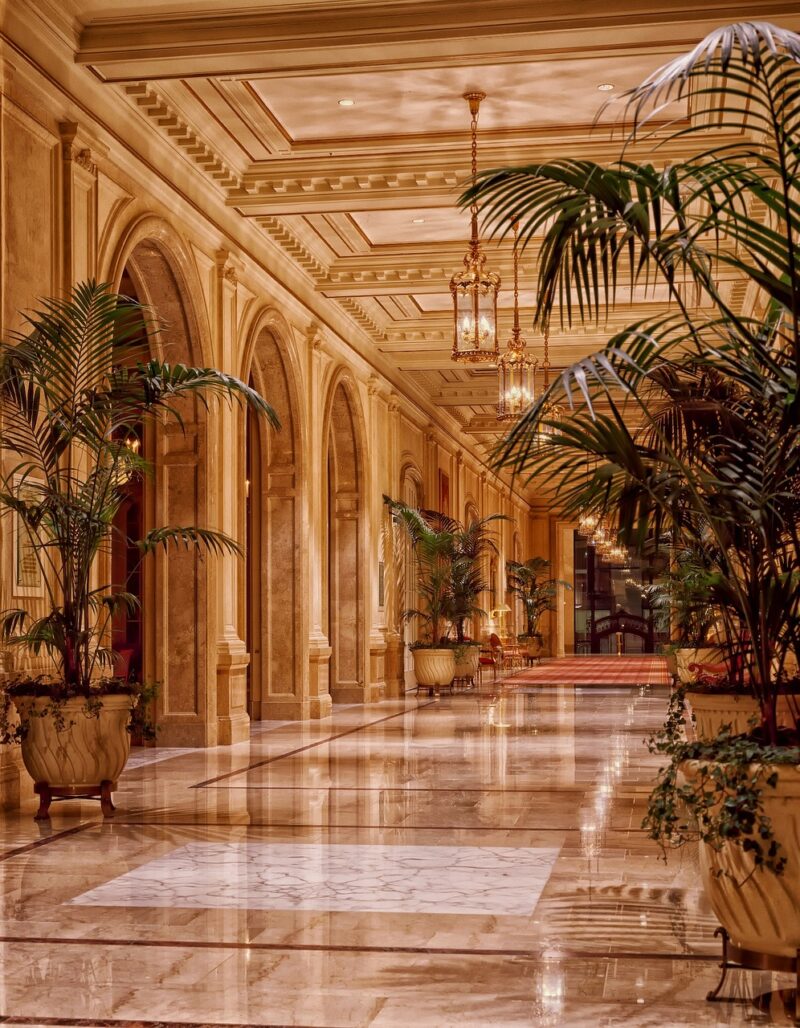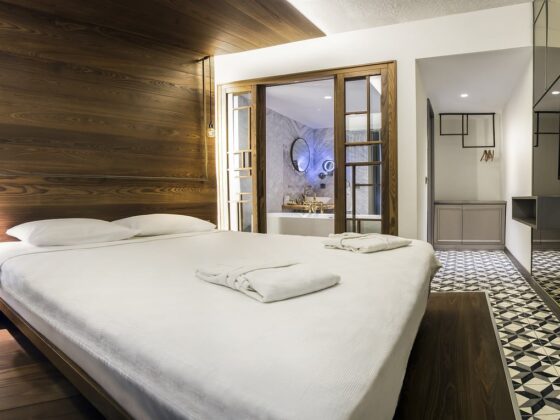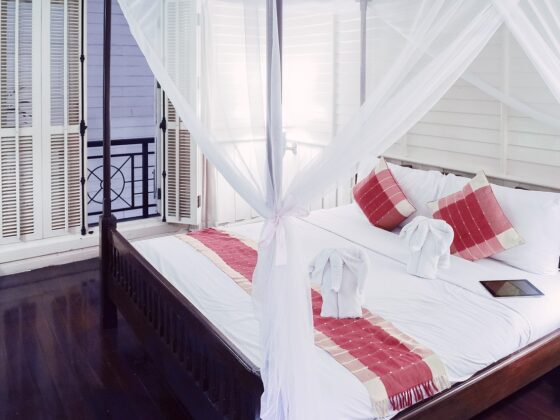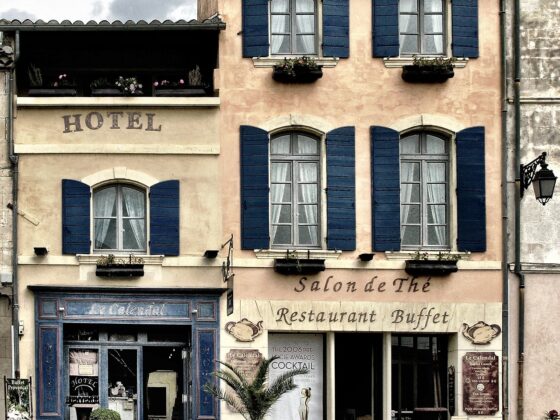When planning a trip to London, choosing the right hotel can feel overwhelming. With the city’s vibrant neighborhoods, each offering its own unique charm, you might find yourself wondering: is it worth staying in central London, or will a hotel in a different area provide a better experience? In this blog post, we’ll delve into the key differences between hotels in central London and those situated in other parts of the city. By examining factors like pricing, amenities, and the overall atmosphere, we aim to help you make an informed decision that suits your travel needs and budget. Whether you’re visiting for leisure or business, understanding these nuances can enhance your stay in one of the world’s most captivating cities.
Location and Accessibility
When considering a stay in London, the location of your hotel can significantly influence your overall experience. The bustling heart of Central London offers undeniable advantages, while hotels located in outer areas present their own unique benefits. This section will break down the pros and cons of each option, helping you make an informed decision tailored to your needs.
Advantages of Central London Hotels
Staying in Central London places you right in the middle of the action. Here are some of the key benefits:
Proximity to Major Attractions
- Iconic Landmarks: Hotels like the Park Plaza Westminster Bridge and the Hilton London Bankside are within walking distance of famous sites such as the London Eye, Big Ben, and the Houses of Parliament.
- Cultural Hotspots: You can easily visit the British Museum or the Tate Modern, both just a short tube ride away from central accommodations.
Public Transportation Access
- Tube Stations: Central London is served by multiple underground lines. Hotels such as the Radisson Blu Edwardian, Mercer Street are conveniently located near stations like Covent Garden and Leicester Square. This ensures quick access to the entire city.
- Bus Services: Frequent bus routes operate in the area, allowing you to explore beyond the tube network without hassle.
Business Convenience
- Corporate Hub: For business travelers, hotels like the Sheraton Grand London Park Lane are situated near key business districts such as the City of London and Canary Wharf.
- Meeting Facilities: Many central hotels offer excellent meeting and conference facilities, making it easy to conduct business meetings without lengthy commutes.
Disadvantages of Central London Hotels
While Central London hotels have their perks, they also come with some drawbacks:
Higher Prices
- Cost: Accommodations in central locations can be significantly more expensive. For example, a room at the Mandarin Oriental Hyde Park can cost upwards of £500 per night, while similar hotels in outer areas may offer rates closer to £150—£250.
Noise and Crowds
- Bustling Atmosphere: The constant flow of tourists can lead to noise and crowded public spaces. Hotels like the Ibis Styles London Excel might offer a quieter experience due to their location away from the busiest tourist spots.
Advantages of Outer London Hotels
Choosing to stay in outer London can provide a different experience altogether. Let’s explore the benefits:
Quieter Surroundings
- Relaxation: Hotels like the Thistle London Heathrow or the Hilton London Croydon offer peaceful environments perfect for unwinding after a busy day. You’ll find yourself in quieter neighborhoods with less hustle and bustle.
- Local Experience: Staying in areas like Richmond or Greenwich allows you to experience London like a local, with charming shops, parks, and eateries.
More Space and Better Value
- Affordability: Hotels in outer areas often provide more spacious rooms for a better price. For instance, the Holiday Inn London – Wembley offers family rooms at a fraction of the cost of central locations.
- More Amenities: Many outer London hotels include additional amenities such as pools, gyms, and larger dining areas, enhancing your overall stay.
Disadvantages of Outer London Hotels
However, there are potential downsides to consider when opting for outer London hotels:
Distance from Key Attractions
- Travel Time: Attractions in central London may be farther away, requiring longer travel times. For example, staying at the Premier Inn London – Richmond might mean a 30-45 minute journey to the West End.
- Transport Costs: Additional transport fares can accumulate, especially for families or groups, potentially negating any savings from cheaper hotel rates.
Limited Public Transport Options
- Fewer Connections: While outer London does have public transport, the frequency and number of connections can be limited compared to central areas. This can lead to longer waiting times and less flexibility in your travel plans.
Comparison Table
| Factor | Central London Hotels | Outer London Hotels |
|---|---|---|
| Price Range | £150 – £500+ per night | £100 – £250 per night |
| Proximity to Attractions | Walking distance to major sites | Requires public transport |
| Noise Level | Busier and noisier | Quieter and more relaxed |
| Public Transport Access | Excellent tube and bus services | Limited options in some areas |
| Local Experience | Tourist-centric | More local flavor and community |
| Amenities | Limited space, fewer amenities | More spacious rooms and facilities |
By weighing the advantages and disadvantages of hotel locations in Central London versus outer areas, you can make a choice that best fits your travel style, whether that’s the vibrant energy of the city or a peaceful retreat.
Pricing and Value: A Comparison of Central London Hotels vs. Outer Regions
When planning a trip to London, your choice of accommodation can significantly impact your overall experience and budget. Hotels in central London often come with a hefty price tag due to their prime locations near iconic landmarks, dining, and entertainment. However, this does not mean that visitors should overlook the options available in the outer regions of London, which can offer better value for money. In this section, we will delve deeper into the pricing differences and explore how to find good value in both central and non-central locations.
Understanding Central London Hotel Prices
Central London is a bustling hub filled with attractions like the British Museum, Buckingham Palace, and Covent Garden. As a result, hotel prices in this area are typically higher. Here’s a brief overview of what you can expect:
- Price Range: On average, a mid-range hotel in central London, such as the Holiday Inn London – Kensington Forum, can range from £150 to £300 per night, depending on the season and demand.
- Space and Amenities: Central hotels often provide less space for the price. For example, the Ibis Styles London Gloucester Road features compact rooms with modern decor but limited square footage.
- Location Benefits: The convenience of being close to major attractions can save time and transport costs. For instance, staying at the Radisson Blu Edwardian, Kenilworth puts you within walking distance of the British Museum.
Exploring Outer London Options
While central London has its advantages, outer regions can offer larger accommodations and more amenities at a lower price point. Here’s what to consider:
- Price Range: A mid-range hotel in outer London, like the DoubleTree by Hilton London – Ealing, can cost between £80 and £150 per night, presenting significant savings compared to central options.
- Space and Amenities: Hotels in outer areas often have larger rooms and additional amenities. For instance, the Novotel London Greenwich offers spacious family rooms, a swimming pool, and a fitness center.
- Transport Accessibility: Many outer London hotels are well-connected to the Tube and bus networks, allowing easy access to central locations. The Premier Inn London Hendon is a good example, located near the Northern Line.
Tips for Finding Good Value
Regardless of where you choose to stay, there are several strategies to ensure you get the best value for your money:
1. Book in Advance
- Many hotels offer early bird discounts. For example, booking a room at the Marriott London Twickenham a few months in advance can result in savings of up to 20%.
2. Consider Package Deals
- Look for travel packages that include flights, accommodation, and sometimes even meals. Websites like Expedia often have deals that can save you money compared to booking separately.
3. Stay During Off-Peak Seasons
- Prices can spike during peak tourist seasons (summer and holidays). Consider visiting during spring or early autumn to take advantage of lower rates.
4. Utilize Loyalty Programs
- Joining hotel loyalty programs can yield significant savings. For example, joining Hilton Honors can provide access to exclusive discounts and perks.
5. Look for Unique Accommodation
- Consider Airbnb or serviced apartments instead of traditional hotels. Options like Stay City Aparthotels in Greenwich provide a home-like environment with kitchens, which can help save on food costs.
Summary of Key Points
| Feature | Central London Hotels | Outer London Hotels |
|---|---|---|
| Average Price Range | £150 – £300 per night | £80 – £150 per night |
| Room Size | Smaller, compact rooms | More spacious rooms |
| Amenities | Limited amenities | Often include pools and fitness centers |
| Location Benefits | Close to major attractions | Good transport links to central London |
| Booking Strategies | Early bird discounts, loyalty programs | Package deals, off-peak stays |
By considering both central and outer London options, travelers can strike a balance between location and affordability, ensuring their stay in London is both enjoyable and economical. Whether you prefer the vibrancy of central London or the spacious offerings of the outer regions, strategic planning can help you find the best value for your accommodation.
Key Takeaways on Hotel Experiences Across London
In conclusion, hotels in central London offer unparalleled access to iconic attractions, vibrant nightlife, and a diverse dining scene, making them ideal for first-time visitors and those seeking convenience. However, this prime location often comes with a higher price tag and smaller accommodations. On the other hand, hotels in outer London can provide more spacious options and better value for budget-conscious travelers, though they may require longer commutes to the city center. Ultimately, the choice between central and outer London hotels hinges on individual priorities, such as budget, purpose of visit, and personal preferences. By weighing these factors, travelers can find the perfect accommodation to enhance their London experience.










17 comments
I’m planning a trip to London next month. Any last-minute tips on finding deals on hotels?
Absolutely! Booking last-minute can sometimes yield great deals, especially on apps like HotelTonight. And always check for promo codes online!
Can you recommend some specific hotels in central London that offer good value for money?
Great article! I visited London last year and stayed in Shoreditch. It was way cheaper than central London but still had great access to the tube. Those prices make a huge difference when you’re on a budget!
Thanks for sharing your experience! Shoreditch is indeed a fantastic area with lots of character and good transport links. It’s great to hear you found a budget-friendly option!
What’s your take on boutique hotels versus larger chains in central London? Is one better than the other?
Great question! Both have their pros and cons. Boutique hotels often offer a unique experience, while larger chains may provide consistency and amenities. It depends on what you’re looking for!
I think central London hotels are overrated. They rely on tourists and don’t always provide good service. What do you think?
It’s definitely a mixed bag! Some hotels do rely on foot traffic, but there are gems out there. It really comes down to doing your research before booking!
If you’re considering hotels in central London, check out the Premier Inn near the Tower of London. It’s super accessible and often has good deals!
Thanks for the tip! Premier Inn is a solid choice for good value and convenience, especially near major attractions.
I’d love to read more about the impact of tourism on hotel pricing in London. It’s such a hot topic!
That’s a fascinating topic! I’ll definitely consider writing an article exploring how tourism influences hotel pricing. Thanks for the suggestion!
I’d love to hear more about the amenities in central London hotels. Are they really worth the extra cost compared to places in other areas?
That’s a great point! I’ll definitely look into expanding on the amenities in central London hotels and how they compare. Stay tuned!
I had a terrible experience at a hotel in central London last summer. The service was awful! Anyone else have similar stories?
Sorry to hear about your experience! It’s unfortunate that some hotels don’t meet expectations. Sharing these stories helps others make informed decisions.
Comments are closed.